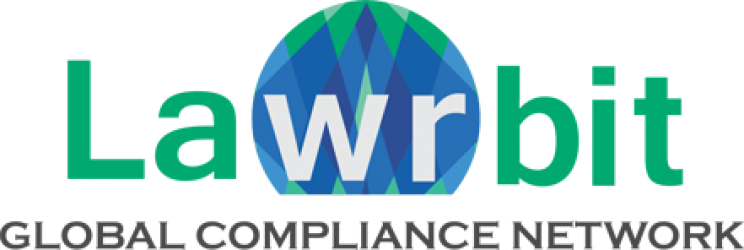Introduction
The Securities and Exchange Board of India has amended SEBI (Listing Obligation and Disclosure Requirements) Regulations, 2015 (Listing Regulations) dated June 14, 2023 on the recommendation of the ESG Advisory Committee and the consultation paper, to introduce the BRSR Core and Assurance for Value Chain.
For all listed companies in India, Business Responsibility and Sustainability Reporting (BRSR) is a statutory reporting obligation, which was introduced in 2012. Subsequently, encouraging the listed entity to implement sustainable business practices and provide information about their environmental, social, and governance (ESG) performance is the goal of the BRSR framework.
The Business Responsibility and Sustainability Reporting (BRSR) is aligned with the reporting standards of different global sustainability reporting frameworks, such as the Global Reporting Initiative (GRI) and the United Nations Global Compact (UNGC) which aims to enhance the quality of reporting by listed entities in India.
BRSR Principle-wise Performance Disclosure
Business Responsibleness and Sustainability Reporting framework is guiding organisations towards sustainable and responsible business operations. The BRSR Principle-wise Performance Disclosure section of the report is an important tool for companies to communicate their sustainability performance to stakeholders and create greater transparency and accountability in their operations.
The disclosures are categorized into essential indicators and leadership indicators. The essential indicators are those which should be made public by all the entities under the BRSR report. Examples of essential indicators include details of the company’s sustainability policies, goals, and targets; details of the company’s impact on the environment, health, and safety of employees and other stakeholders; and details of the company’s efforts to promote human rights and support social and economic development.
On the contrary, organisations that wish to move towards a higher level of social, environmental and ethical responsibility can voluntarily disclose leadership indicators. Examples of leadership indicators include details of the company’s efforts to innovate and adopt sustainable and responsible practices; details of the company’s engagement with stakeholders, including customers, suppliers, and communities; and details of the company’s efforts to promote inclusive growth and equitable development.
9 Principles of BRSR:
The Securities and Exchange Board of India has enumerated set of nine principles, aiming at guiding companies to adopt sustainable business practices and reporting them transparently and exhaustively.
Businesses should conduct and govern themselves with integrity, and in a manner that is Ethical, Transparent and Accountable
Businesses should provide goods and services in a manner that is sustainable and safe
Businesses should respect and promote the well-being of all employees, including those in their value chains
Businesses should respect the interests of and be responsive to all its stakeholders
Businesses should respect and promote human rights
Businesses should respect and make efforts to protect and restore the environment
Businesses, when engaging in influencing public and regulatory policy, should do so in a manner that is responsible and transparent
Businesses should promote inclusive growth and equitable development
Businesses should engage with and provide value to their consumers in a responsible manner
These nine principles represent core elements for companies to demonstrate their intent and commitment to responsible business conduct through actions and outcomes. These principles are further divided into two types: Essential indicators (mandatory) and Leadership indicators (voluntary) under the comprehensive BRSR format as specified by the SEBI for reporting by Entities.
Significance of Assurance and Assurance Provider
Business Responsibility and Sustainability Reporting (BRSR) is an evolving field, with increasing scrutiny from regulators, investors, and other stakeholders. The recent mandate by the Securities and Exchange Board of India (SEBI) that the top 150 listed companies must obtain reasonable assurance on their BRSR Core disclosures from FY 2023-24 onwards.
Reasonable assurance of BRSR is considered as one of the parts of the broader landscape of assurance. However, a high level of accuracy and consistency is required in the reported data. Reasonable assurance is an independent assessment by a qualified third-party assurance provider that a company’s BRSR disclosures are accurate and complete. It shall ensure that stakeholders are confident in the credibility and transparency of a company’s ESG performance.
Value Chain Partners: Obligations and Challenges
A value chain is a network of companies or strategic actors working together for the purpose of satisfying market demands with respect to one specific product or service.
A value chain facilitates the use of valuable resources, in each step of product and service development process, so that companies can gain an edge over competitors and reduce waste. This can include, for example, inbound logistics, operations, outbound logistics, marketing, sales, and a number of support-related activities (take a look here to see how this value chain concept was successfully implemented by Starbucks). The overall aim of the value chain is, in particular, to add value and make products or services more valuable by adding value at all stages thereby making them more profitable.
Timeline for Applicability of Various Disclosures
Based on the recent LODR Amendment Regulations, mandating assurance and focusing on ESG disclosures as per the following mentioned timeline by listed entities:
| Disclosures | FY 2022-23 | FY 2023-24 | FY 2024-25 | FY 2025-26 | FY 2026-27 |
|---|---|---|---|---|---|
| BRSR | Top 1000 (Mandatory) |
Top 1000* (Mandatory) |
Top 1000* (Mandatory) |
Top 1000* (Mandatory) |
Top 1000* (Mandatory) |
| BRSR Core + Reasonable Assurance |
NA | Top 150 | Top 250 | Top 500 | Top 1000 |
| NA | Top 150 | Top 250 | Top 500 | Top 1000 | |
| Value Chain + Limited Assurance |
NA | NA | To 250 (Comply or Explain) |
Top 250 (Mandatory) |
To be* prescribed |
| NA | NA | NA | Top 250 (Comply or Explain) |
To be* prescribed |
Conclusion
The introduction of the BSR Core Framework is an interim step to diversify disclosure requirements and guarantee sustainability throughout the value chain in India. As businesses move through the continuous reporting process, these requirements will strengthen credibility and facilitate informed decision making. While certain challenges may remain ahead related to data availability, quality, and maturity of value chain partners – there are also clear solutions to help address these challenges — using smart, digital data management platforms. By utilizing flexible ESG data management and technology, organizations can simplify the reporting process and create trust among stakeholders, as well as additional transparency into ESG Performance.
Disclaimer
The information provided in this article is intended for general informational purposes only and should not be construed as legal advice. The content of this article is not intended to create and receipt of it does not constitute any relationship. Readers should not act upon this information without seeking professional legal counsel.


